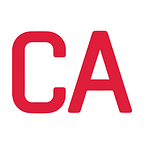WECMS: Making a Lasting Impact
Delivering on the promise of government as a platform (GaaP)
The Centers for Medicare and Medicaid Services’ (CMS) Web and Emerging Technologies Group (WETG) helps millions of people find and enroll in healthcare programs every year. Its websites and tools give beneficiaries the resources they need to make informed decisions about their care. On the Web Experience and Content Management Services (WECMS) project, CivicActions and our partner, Fearless, were brought on to migrate, re-platform, and redesign a portfolio of WETG assets and products.
Our team worked closely on not only making WECMS more streamlined and human-centered, but also focused on how — within the context of Government as a Platform (GaaP) — we can reimagine how users navigate healthcare as partners in service.
GaaP is definitionally “used to refer to the whole ecosystem of shared APIs and components, open-standards and canonical datasets, as well as the services built on top of them and governance processes that (hopefully) keep the wider system safe and accountable.”¹ Using a model of openness and collaboration, GaaP sees government services as a platform through which users can engage with and participate as partners in public services — both for constituents, communities, and administrators.
We are delivering on the promise of GaaP by setting Centers for Medicare and Medicaid Services (CMS) up with the architecture needed to deliver. As we encounter high — and often changing — priorities (i.e. No Surprises Act, nursing home subsection, federally-mandated work like COVID guidelines, etc), we have adapted quickly.
“Our work on this project has increased accessibility and usability,” said Fearless’ Health and Sciences Portfolio Director Nichole Weems. “Content is now easier to find, and the sites are more modern, delightful, and trustworthy. All of these changes reduce the risk that users will leave the site in frustration before finding the information they need.”
By reducing the time between policy design and service delivery, we have made it possible for CMS’ programs to serve some of the most vulnerable, so that it is as easy as possible to access benefits and information. Ultimately, WECMS provides a vital, centralized platform for individuals to access information and acquire benefits relating to their health needs.
Measuring the Impact
Over 100 million people utilize CMS per year, many of whom are members of vulnerable populations whose need for affordable care is critical.
Roughly 6.9 million people use our WECMS sites monthly. Medicare.gov receives 4.2 million monthly users and CMS.gov receives 2.3 million monthly users, with more users utilizing additional data sites as well. Our WECMS sites are the definition of high-impact sites. And they lead how FedHealth and FedTech beneficiaries and physicians engage with government digital services.
For this project, we have not only taken a user-driven, data-informed approach to the UX design process, we have also replaced CMS’ proprietary software with open source. By replacing CMS’ proprietary software Socrata with the open source software DKAN 2, we enabled CMS to save more than $30M in licensing fees over the next 10 years. In addition, this switch allows the agency to have better and more secure access to the user data store on Medicare.gov. Overall, these changes have led to a better future foundation for Medicare.gov. The impact of this website will be felt by millions of people, who will now utilize the site with more ease and understanding.
Our work has transformed CMS, which is one of the country’s largest health systems. In addition to a large impact in terms of user base, the work we have done has also reduced costs for CMS. For instance, on top of the savings through using open source software like DKAN, our tech leads identified two servers that could be decommissioned. This will save CMS roughly $240K per year in server hosting costs.
But this impact goes beyond agency savings. Our dedication to be good stewards of taxpayer money ensures more government efficiency, better access for Americans, and promotes a vision of a government that better serves its people. In addition, it has opened the doors for digital innovation that can influence not only CMS but other agencies using open source software.
Our team is also working with CMS to develop a continuous monitoring strategy and program that includes defining security metrics, ongoing security control assessments, security status monitoring of CMS-defined metrics, analysis of security-related information, response actions, and reporting.
Prioritizing Accessibility and Usability
Overall, WECMS prioritizes accessibility by designing and developing the website with the needs of individuals with disabilities in mind, and by regularly testing and updating the website to address any accessibility issues that are identified. As one in five people have a disability, approximately 20 million of the 100 million annual users of CMS are disabled. This makes accessible design all the more important to these sites.
Through this work, we are changing the culture of accessibility beyond this project. From the start, we have been thinking about accessibility as a foundational value — not as a reactive effort to fix designs/code after release. We have a web accessibility engineer reviewing all new design efforts before approvals, and before we start coding. Since our team is building tools for those new to Medicare and an aging population of beneficiaries, it is incredibly important to build accessible tools.
Our commitment to accessibility for these sites goes beyond compliance and Web Content Accessibility Guidelines (WCAG) 2.0 — it is setting a new and improved standard for usability for all users.
—
¹ Richard Pope, Playbook: Government as a Platform, Harvard Kennedy School Ash Center for Democratic Governance and Innovation, 2019.
